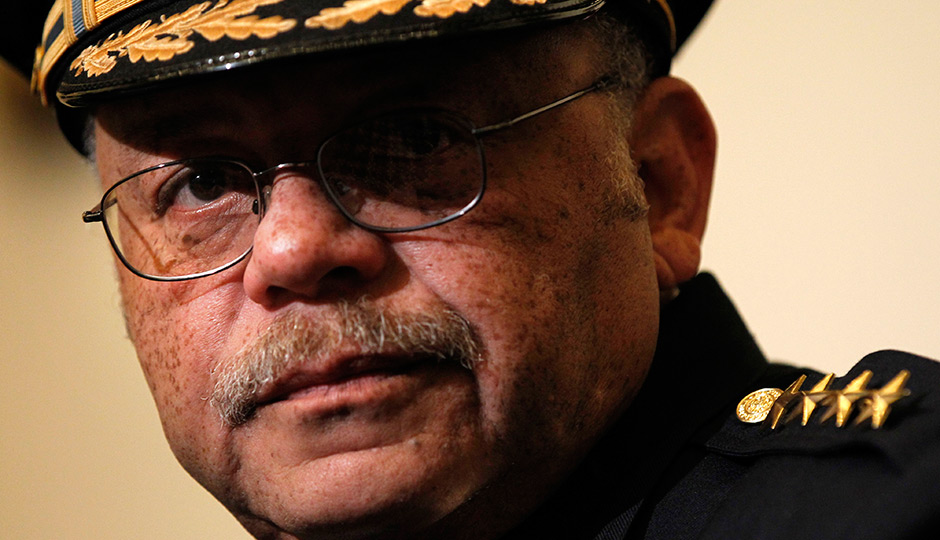Why Is Commissioner Ramsey Silent on ‘Nickel Rides?’
The most alarming part of the Inquirer’s weekend story detailing the possible revival of “nickel ride” abuses by the Philadelphia Police Department wasn’t the (alleged) corruption described or the (alleged) injuries inflicted.
This was the most alarming part of the Inky’s story:
Police Commissioner Charles H. Ramsey declined repeated requests for an interview on the issue. His department also rejected requests to provide a statistical breakdown of cases in which police were disciplined for violating policies on transporting suspects.
Wait. What?
Commissioner Ramsey: The city’s most important news organization — a title the Inquirer retains despite its recent organizational troubles — says it’s going public with information that suggests the police force routinely inflicts injury and vigilante justice on arrestees, and your response is … silence?
That stinks. If you’re in the business of serving the public — and Ramsey is — then there are a number of responses you can give to these kinds of inquiries to show the public that you’re on top of things, that the average citizen doesn’t need to fear getting a broken neck in the back of a police van:
• “We’re aware of the accusations, and we’re investigating them.”
• “We’ve investigated these accusations, and we’ve concluded they have no merit.”
• “We’ve investigated these accusations and turned evidence over to the FBI for further discovery.”
• “We’re aware of the accusations, but cannot comment since they’re the subject of litigation.”
Such responses might be stalling or they might be true, but they at least offer the public the seeming assurance that you give a damn. No comment? That just feels like a victory of the code of silence over public service. It’s not what we’ve come to expect — or deserve to expect — from a commissioner who, not so long ago, invited federal officials to town to investigate his department’s use of deadly force.
In a city that puts forth a new cop corruption case literally every other week — and in a city that suffers mightily from the burden of “no snitching” culture — Ramsey’s refusal to publicly acknowledge the possibility of a problem risks breaking faith with the citizenry. We don’t expect him to fix corruption overnight (obviously) but Philadelphians do expect that Ramsey is A) constantly working to crack down on crime and B) trying do it in such a way that respects the rights of the public. We have increasing evidence he’s getting the first job done; maybe that’s why he suddenly seems comfortable letting Philadelphia twist on the topic of the second question.
To be fair, Ramsey followed his weekend silence by granting an interview for today’s paper to Daily News columnist Stu Bykofsky, who was less interested in any specific example of corruption than the problem of “rogue cops” in general — and how affirmative-action policies might the contributing to the problem. Not a lot of light was shed, to say the least.
Even with the Byko interview, though, it seems we’ve seen more peevishness than frankness from the commissioner of late. You’ll recall that in late October, Ramsey responded to criticism of his new chief safety officer for Philly public schools — who’d previously been demoted over sexual assault allegations — with this “leave me alone” comment: “This is an assignment that I made. I don’t understand what the issue is, or why anybody is concerned about it.”
At the time, I expressed amazement that Ramsey had avoided the taint of his department’s many scandals for a long time, and suggested it past time for him to start taking a little blame instead of fobbing it off on the rank and file. That’s more true now than it was six weeks ago. It’s time for Commissioner Ramsey to start answering tough questions.
Follow @JoelMMathis on Twitter.



